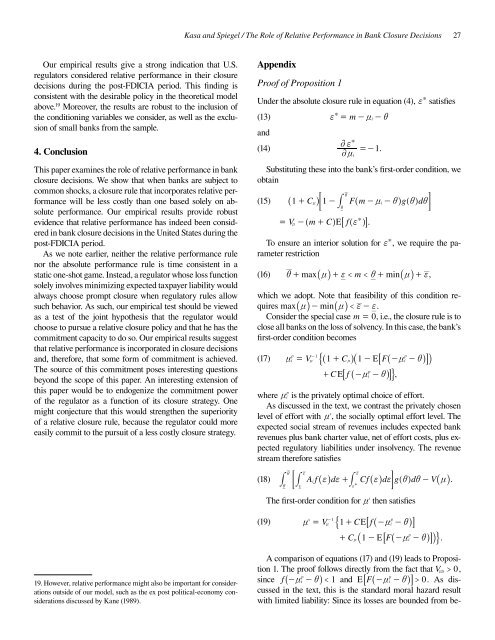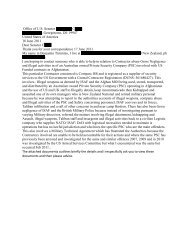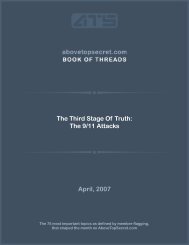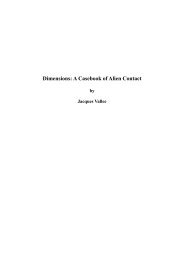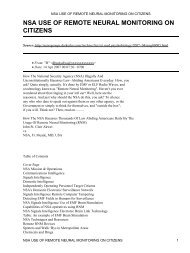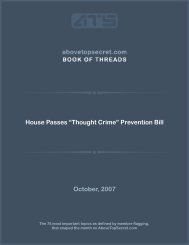The Role of Relative Performance in Bank ... - Above Top Secret
The Role of Relative Performance in Bank ... - Above Top Secret
The Role of Relative Performance in Bank ... - Above Top Secret
Create successful ePaper yourself
Turn your PDF publications into a flip-book with our unique Google optimized e-Paper software.
Kasa and Spiegel / <strong>The</strong> <strong>Role</strong> <strong>of</strong> <strong>Relative</strong> <strong>Performance</strong> <strong>in</strong> <strong>Bank</strong> Closure Decisions 27Our empirical results give a strong <strong>in</strong>dication that U.S.regulators considered relative performance <strong>in</strong> their closuredecisions dur<strong>in</strong>g the post-FDICIA period. This f<strong>in</strong>d<strong>in</strong>g isconsistent with the desirable policy <strong>in</strong> the theoretical modelabove. 19 Moreover, the results are robust to the <strong>in</strong>clusion <strong>of</strong>the condition<strong>in</strong>g variables we consider, as well as the exclusion<strong>of</strong> small banks from the sample.4. ConclusionThis paper exam<strong>in</strong>es the role <strong>of</strong> relative performance <strong>in</strong> bankclosure decisions. We show that when banks are subject tocommon shocks, a closure rule that <strong>in</strong>corporates relative performancewill be less costly than one based solely on absoluteperformance. Our empirical results provide robust#iAppendixPro<strong>of</strong> <strong>of</strong> Proposition 1Under the absolute closure rule <strong>in</strong> equation (4),(13) f )= m -n i - i)f , we require the pa-)evidence that relative performance ^1+ Chas nh< <strong>in</strong>deed 1- been F^ mconsid--ni- ihg] igdiF= Vn- ] m+CgE7f] f gA.ered <strong>in</strong> bank closure decisions <strong>in</strong> the United States dur<strong>in</strong>g theipost-FDICIA period.As we note earlier, neither the relative performance ruleTo ensure an <strong>in</strong>terior solution forrameter restrictionnor the absolute performance rule is time consistent <strong>in</strong> astatic one-shot game. Instead, a regulator whose loss functionsolely <strong>in</strong>volves m<strong>in</strong>imiz<strong>in</strong>g expected taxpayer liability wouldalways choose prompt closure when regulatory rules allowmax_i < m 0,s<strong>in</strong>ce f ^ -npi -ih< 1 and E 7 F ^-npi -ihA> 0. As discussed<strong>in</strong> the text, this is the standard moral hazard resultwith limited liability: S<strong>in</strong>ce its losses are bounded from be-


